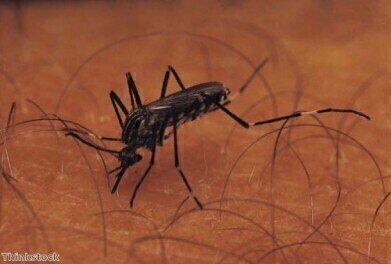-
 The vaccine could stop the transmission of the virus from mosquitos to humans
The vaccine could stop the transmission of the virus from mosquitos to humans
Bioanalytical
Clearance granted for new malaria vaccine trial
Feb 05 2014
Clearance from the US Food and Drug Administration (FDA) has been obtained by Fraunhofer USA Center for Molecular Biotechnology (FhCMB) for a new investigational drug (IND). A phase one study will now be able to test the companies malaria transmission-blocking vaccine (TBV).
The plant-derived drug works by directing antibodies at the Pfs25 antigen in order to block the malaria parasite from being transmitted from mosquito to humans. It does this by stopping it from developing within the mosquito in the first place.
Preclinical models showed that virus-like particles, which contain Pfs25, that were derived from plants work with adjuvant Alhydrogel. This then blocks the mosquitos from becoming infected with malaria by inducing antibodies, even after the mosquitos have fed on an infectious host. The vaccine could help interrupt the transmission of the virus if the same results can be achieved within humans, which could then reduce the p. falciparum disease burden.
Dr Vidadi Yusibov, executive director of FhCMB, said: "Entering this clinical trial is an important milestone. We have moved targets from molecular engineering all the way through to pilot scale manufacturing in plants under good manufacturing practices and evaluation in a phase one clinical trial."
The phase one clinical trial is being run by a partnership, formed of FhCMB, Accelovance and PATH Malaria Vaccine Initiative (MVI). It is part of the work to improve global health by helping to develop new vaccines to deal with malaria, especially in countries where the virus is endemic.
Dr Ashley J Birkett, director of MVI, said: "We are excited to see this promising new vaccine approach advance to clinical testing. Vaccines that can induce immunity to break the cycle malaria parasite transmission between humans and mosquitoes have the potential important interventions to accelerate future elimination and eradication efforts."
Although a treatment for malaria is available, the virus is still widespread and causes a high number of deaths each year. The development of a vaccine that can help promote immunity could help to drastically reduce the number of people that become infected with the virus.
Digital Edition
Chromatography Today - Buyers' Guide 2022
October 2023
In This Edition Modern & Practical Applications - Accelerating ADC Development with Mass Spectrometry - Implementing High-Resolution Ion Mobility into Peptide Mapping Workflows Chromatogr...
View all digital editions
Events
Jan 20 2025 Amsterdam, Netherlands
Feb 03 2025 Dubai, UAE
Feb 05 2025 Guangzhou, China
Mar 01 2025 Boston, MA, USA
Mar 04 2025 Berlin, Germany











